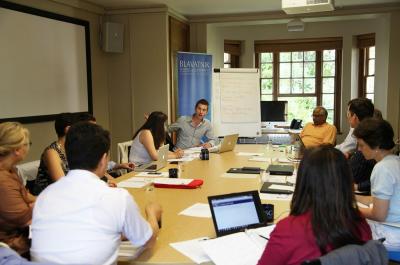Workshop on Transnational climate governance and domestic politics
Many believe that transnational climate governance (TCG) can play a meaningful role in global efforts to abate greenhouse gas emissions. To do so effectively, such arrangements depend upon their ability to engage a large number of sub- and non-state actors, including those rapidly developing Global South. However, new data reveals that there is in fact substantial cross-national variation in the extent to which actors are involved and in the types of initiatives that they engage. It is, therefore, essential for both scholars and policymakers to understand what compels and conditions decisions to do so.
On 23 and 24 June GEG hosted a small private workshop with academics working on a new special issue of a journal on TCG. The proposed special issue examines how domestic politics and other country-level variables affect sub- and non-state actors’ participation in TCG. While there is now a substantial literature that uncovers the trends in governance beyond the state, this collection of articles seeks to make a theoretical contribution by focusing on the politics of differential engagement across jurisdictions, actors and types of transnational governance initiatives. The empirical contributions are two-fold. The analyses exploit a new database of TCG to analyze common hypotheses regarding the relationship between domestic political mechanisms and transnational governance in various arenas of TCG: e.g., cities, carbon markets, corporate governance programs, etc. The individual contributions shed further and more detailed light on how specific actors, mechanisms and institution have shape the patterns and outcomes of transnational governance. The findings have important implications for understanding the role of transnational initiatives in climate cooperation and in relation with more traditional state and intergovernmental institutions.



